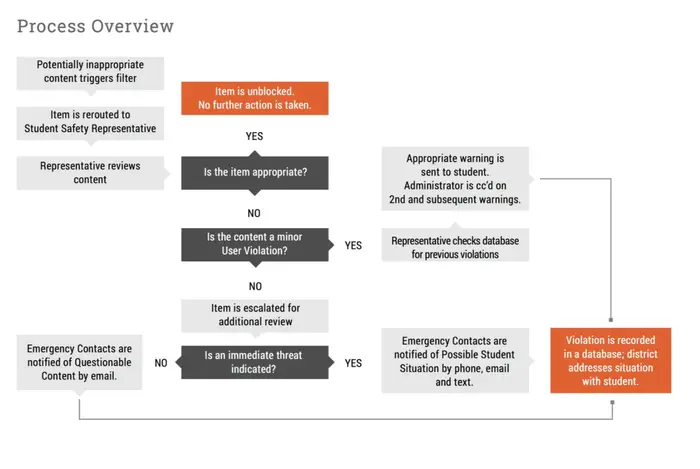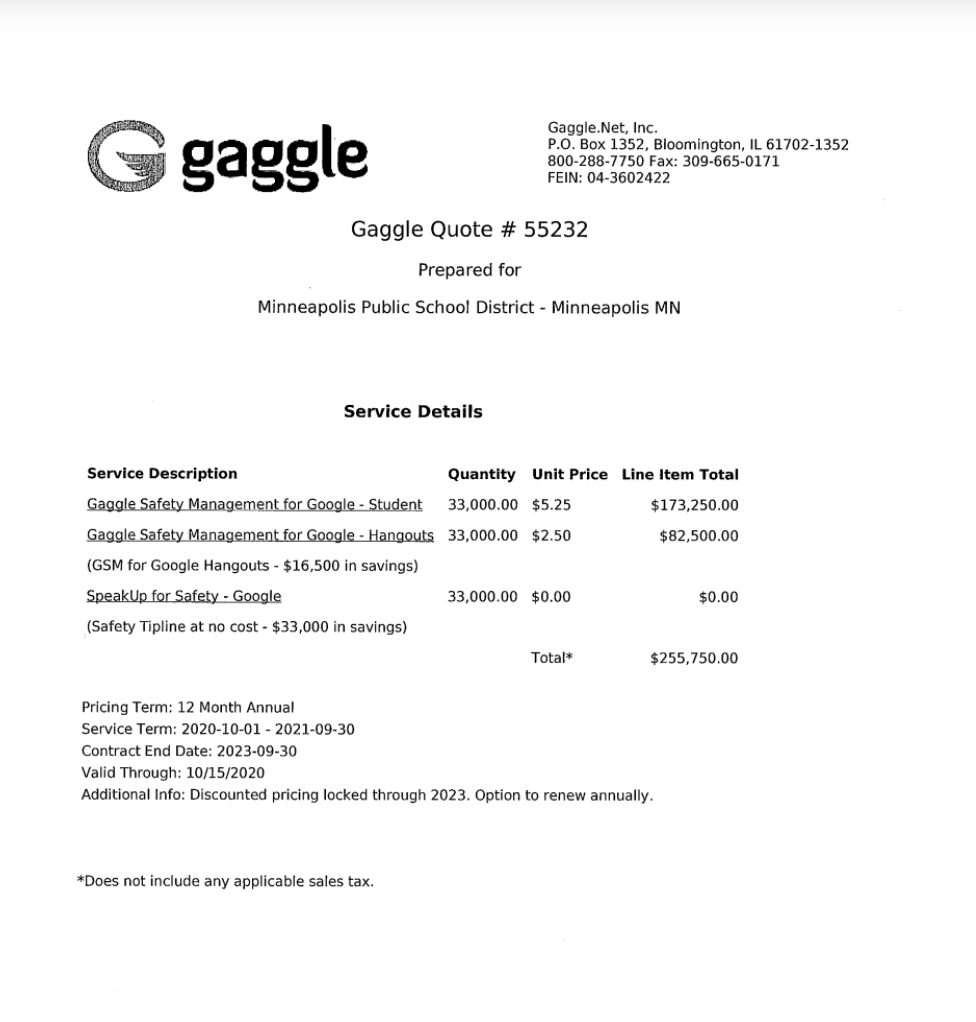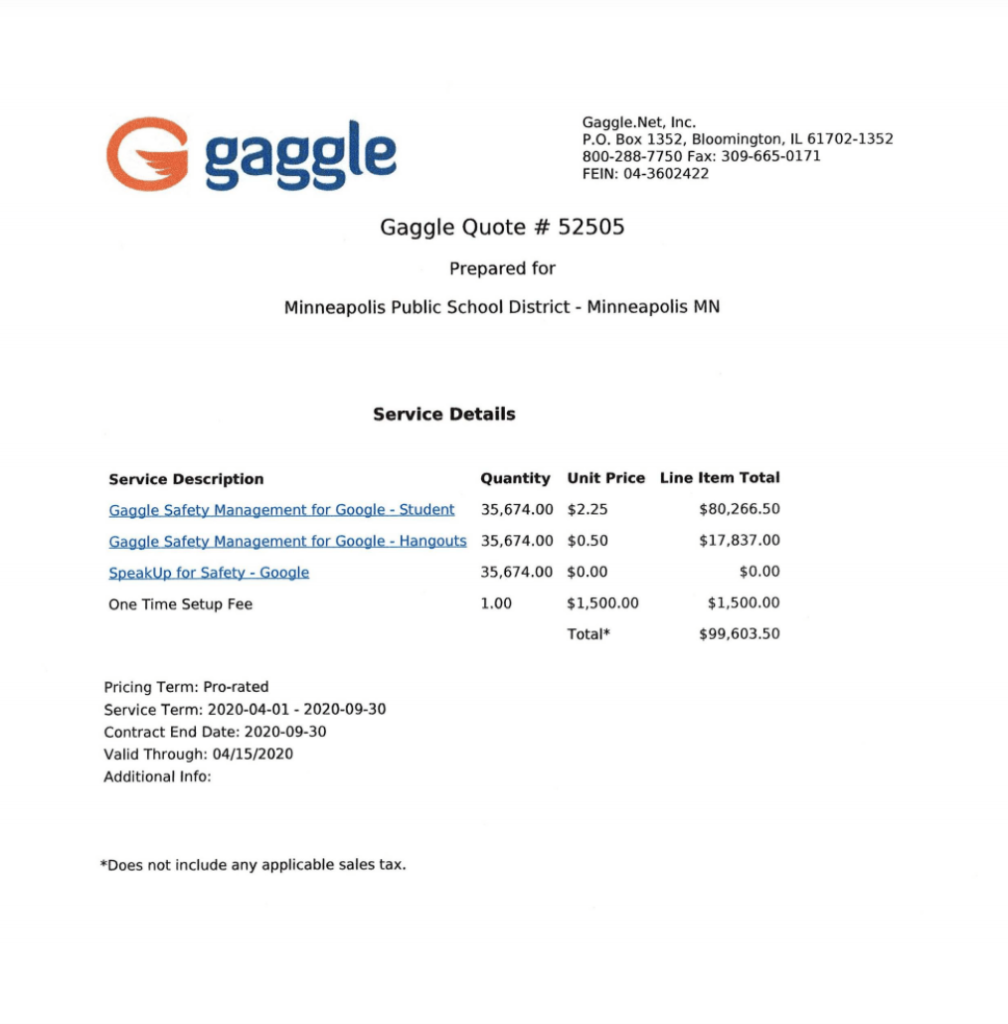Forum Information: Our forum will be held on Monday, April 18th, from 7:30 pm to 9:00 pm at Lake Harriet Methodist Church (4901 Chowen Ave S, Minneapolis, MN 55410).
Speakers include: Marika Pfefferkorn, Ceema Samini, Mark Keierleber, and Jerome Treadwell.
Digital Surveillance and Urban Education in Minneapolis Public Schools

The surveillance of students is an invisible part of their daily school routine. From School Resource Officers to invasive technologies, students’ actions are constantly being put under a microscope. Many believe that this is for student safety, while in practice, the policy has disproportionate effects on students of color, LGBTQ+, and other marginalized groups.
We are working with Marika Pfefferkorn, an experienced community activist, to bring together local stakeholders and create a forum where awareness is raised and action is catalyzed around these issues.
In this forum, we will be looking specifically at a school surveillance technology, Gaggle which is used across the country, notably in the Minneapolis Public Schools. We ask the questions, to what extent does Gaggle protect the health/safety of students versus over-police their actions and development? And how does the case of Gaggle in Minneapolis contribute to the crisis of the school-to-prison pipeline in urban schools?
We will be hearing from students, experts, and activists on Gaggle and its role in the broader context of the school-to-prison pipeline. We plan to convene those community members in a panel where we facilitate a discussion about their work in investigating and countering Gaggle. We will tie this content to the broader issues of surveillance in Minneapolis Public Schools and the school-to-prison pipeline.
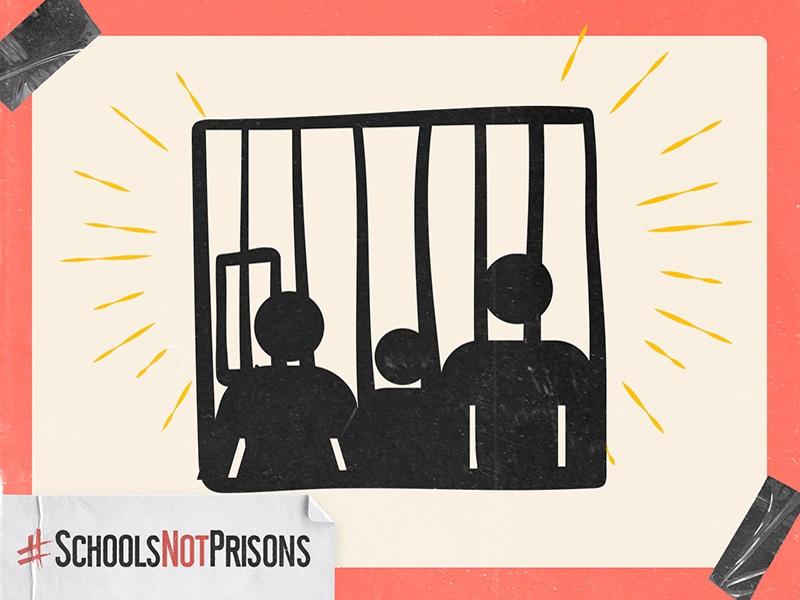
Background
The school-to-prison pipeline has a history that dates back to slavery with the over surveillance of enslaved folks by overseers and the creation of slave catchers who were employed to catch and return enslaved runaways to their enslavers. During the Reconstruction Era, the 13th Amendment was passed that outlawed slavery. However, there was also the creation of the Black Codes which restricted Black people’s rights to own property, conduct business, buy/lease land etc. Even within the 13th Amendment, there is a line that states slavery is outlawed “except as a punishment for crime whereof the party shall have been duly convicted” (U.S. Const. art. IV, § 1.). This line was the opening door to mass incarceration in the United States as it gave a basis to allowing enslavement within the prison system by again exploiting people for labor.
This line within the amendment fueled President Nixon’s War on Drugs in 1968 which criminalized the usage of drugs, most notably crack cocaine and marijuana. It also created the “three-strikes” rule that imposed a life sentence without parole on offenders convicted of a third offense. These “offenders” ended up being Black people who were caught in possession of crack and marijuana. However, possession of cocaine, which was associated with white people, had a much more lenient sentencing. These massive sentencing disparities, combined with segregation under Jim Crow and surveillance under the War on Drugs led to a system where communities of color are under-resourced and over-policed.
The over-surveillance of communities of color further manifests in our schools. American public schools are inadequately resourced, meaning teachers and counselors are overstretched, the quality of education drops, and students slip through the cracks. When students are disengaged, they are more likely to act out and misbehave. For the same actions of misbehavior, students of color are far more likely to be suspended, expelled, or arrested than their white peers. Students with special needs are also a disproportionate share of the pipeline.
In under-resourced communities, schools have increasingly turned to surveillance and law enforcement to create discipline and punishment. This manifests in metal detectors (Reyes 2016), clear backpacks, school resource officers, digital monitoring, and non-violent school-based arrests (ACLU). These policies and arrests are criminalizing people of color at ever-younger ages. Recent studies show that schools with higher percentages of students of color are more likely to rely on intense surveillance and heavy-handed discipline measures (Nance 2016). Once they fall into the criminal/juvenile justice system, it is a vicious cycle that is nearly impossible to break from and re-enter traditional schools.
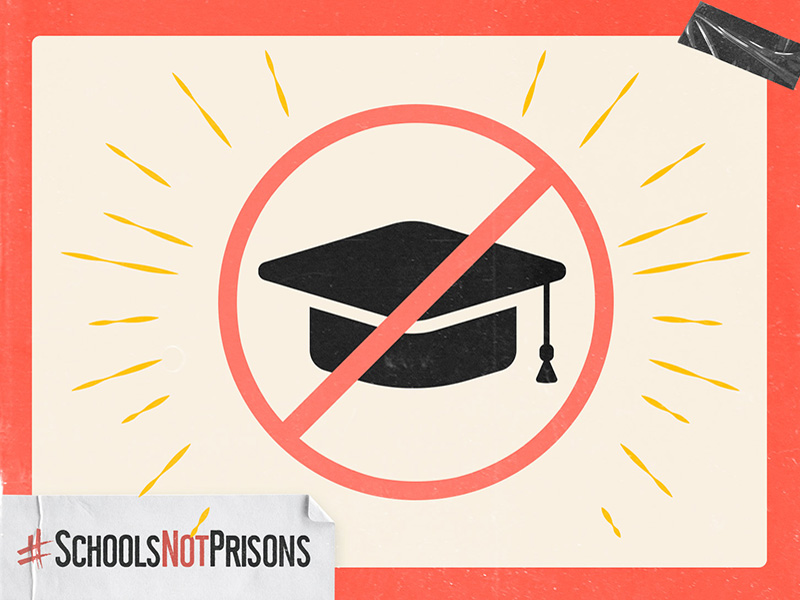
Audience and Takeaways
The target audience is people affected by Gaggle and the larger school-to-prison pipeline; this could be students, parents, teachers, board members, and overall any concerned community members with the policing of school children.
We hope to educate our audience on the evolving nature of the school-to-prison pipeline and how surveillance companies like Gaggle contribute to the policing of LGBTQ+ students, students of color, and other marginalized identities. Ultimately, increased surveillance takes away from the quality of education that students receive. Surveillance technology has been implemented in place of adequate resources and staffing in schools. Despite Gaggle’s advertised intentions of promoting school and student safety, this forum will illustrate the harmful consequences of this technology on marginalized communities.
Recommended sources to read and watch
Gaggle Information
